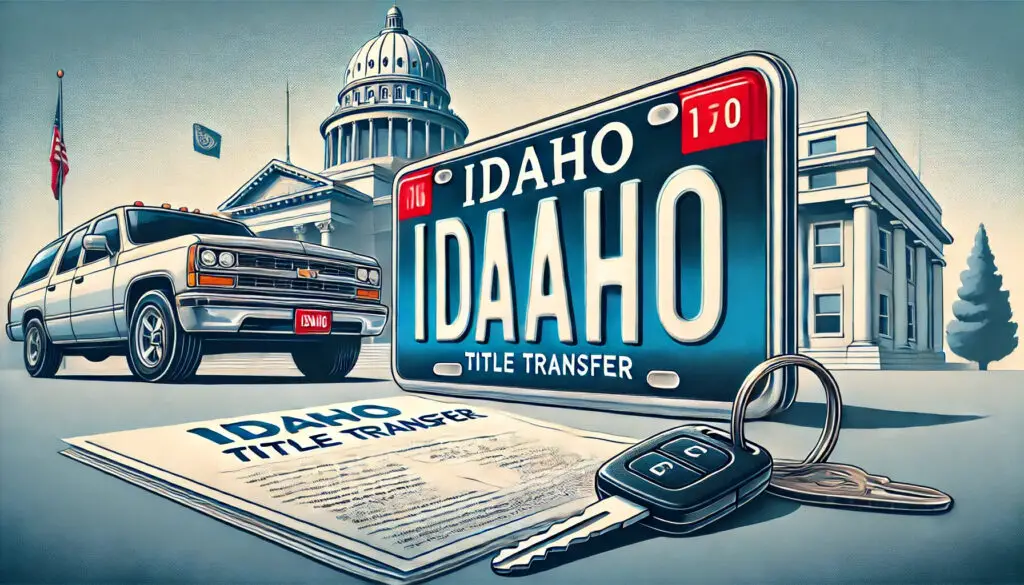Transferring a title in Georgia is a critical legal step to establish ownership of a vehicle or property. Whether you are buying, selling, inheriting, or moving to Georgia with a vehicle, completing the title transfer process ensures that ownership is clear and legally recognized. Failing to complete this process properly can result in fines, penalties, and complications down the road. This comprehensive guide covers all aspects of title transfer in Georgia, offering detailed insights and actionable steps.
What is Title Transfer?
Definition of Title Transfer
Title transfer refers to the process of legally changing the ownership of a vehicle or property from one person or entity to another. It involves updating the Georgia Department of Revenue (DOR) records and issuing a new title document reflecting the current owner’s details.
Legal Significance
- Ensures legal ownership is recorded.
- Provides protection in disputes, theft, or accidents.
- Prevents fraud and establishes accountability for taxes, fees, and penalties.
When is a Title Transfer Necessary?
- Buying or Selling a Vehicle
When purchasing or selling a vehicle in Georgia, transferring the title is mandatory for the transaction to be legally recognized. - Inheritance
If you inherit a vehicle from a deceased individual, you must transfer the title to reflect the new ownership. - Divorce or Separation
Title transfers are required when ownership changes due to a divorce settlement. - Relocation to Georgia
If you move to Georgia and bring an out-of-state vehicle, you must transfer the title within 30 days to comply with state regulations. - Gifted Vehicles
Transferring the title is necessary even if no sale occurs, such as when gifting a vehicle to a family member or friend.
Step-by-Step Guide to Title Transfer in Georgia
Step 1: Gather Required Documents
To complete the title transfer process, you’ll need the following:
- Original Title Certificate
- Signed by the seller in cases of vehicle sales.
- Ensure the VIN, odometer reading, and owner details are accurate.
- Bill of Sale
- Include details like the buyer’s and seller’s names, purchase price, and sale date.
- Some counties may require notarization for additional validity.
- Proof of Identity and Residency
- Provide a valid Georgia driver’s license or state-issued ID.
- Form MV-1 (Application for a Title/Tag)
- Available on the Georgia DOR website or from your local tag office.
- Proof of Lien Release (if applicable)
- If the vehicle was financed, obtain a lien release document from the lender.
Step 2: Visit the County Tag Office
Take all required documents to your local county tag office. Confirm office hours and location beforehand to avoid delays.
Step 3: Pay Title Transfer Fees and Taxes
- Title Transfer Fee: $18
- Sales Tax or Use Tax: Based on the vehicle’s value or purchase price.
- Additional Fees: Late penalties, expedited processing charges, or local taxes may apply.
Step 4: Wait for Processing
The standard processing time for title transfers in Georgia is approximately 30 days. Expedited services are available for a faster turnaround.
Step 5: Receive Your New Title
Once processed, the new title will be mailed to the address provided during the application.
Documents Needed for Title Transfer in Georgia
Core Documentation
- Original Title Certificate: The previous owner must complete and sign the “Transfer of Title” section.
- Bill of Sale: Required for private sales, including details of the transaction.
- Form MV-1: A mandatory application for title transfer.
Additional Situations
- Gifted Vehicles: Include a notarized affidavit of gift.
- Inherited Vehicles: Provide a death certificate, probate documents, or executor’s affidavit.
- Liened Vehicles: Proof of lien satisfaction is required.
Title Transfer Fees and Taxes
- Standard Title Transfer Fee: $18
- Sales Tax: Calculated at the applicable rate based on the vehicle’s fair market value.
- Use Tax: Applies to vehicles purchased privately or out of state.
- Late Penalties: A penalty of $10 may be charged for delayed transfers.
- Exemptions: Certain transfers, such as those between family members, may qualify for exemptions.
Common Mistakes to Avoid
- Incomplete Title Information
- Errors in the VIN, odometer reading, or signatures can delay processing.
- Failing to Submit Required Documents
- Missing a bill of sale, lien release, or other documentation is a common cause of rejections.
- Delays in Submission
- Title transfers must be initiated promptly to avoid penalties and legal complications.
- Underestimating Fees
- Failing to account for taxes and other charges can stall the process.
How Long Does the Title Transfer Take?
- Standard Processing Time: 30 days.
- Expedited Services: Processed within days for an additional fee.
- Special Circumstances: Transfers involving deceased owners or liens may take longer.
Out-of-State Title Transfers
- Requirements for New Georgia Residents
- Submit your out-of-state title, Georgia driver’s license, and proof of residency.
- Complete Form MV-1 and pay applicable taxes.
- Purchases from Out of State
- Verify the VIN and ensure all documents are compliant with Georgia DOR requirements.
Title Transfers for Deceased Owners
- Executor’s Role
- Executors must present probate documentation and the original title for transfer.
- Probate Process
- Titles are transferred to heirs or beneficiaries based on court orders.
- Affidavit of Inheritance
- Used for vehicles exempt from probate.
Online Title Transfers: Is It Possible?
Some counties in Georgia allow partial online title transfer services. However, most transactions, especially those involving complex ownership changes, require in-person visits to the county tag office.
Consequences of Failing to Transfer Titles
- Legal Penalties: Failure to transfer a title promptly can result in fines and legal disputes.
- Ownership Issues: Without a title transfer, buyers cannot register or insure the vehicle.
- Delayed Transactions: Selling the vehicle later may become challenging.
Tips for Smooth Title Transfers
- Prepare Early: Double-check all documentation for accuracy.
- Keep Copies: Retain copies of all forms and receipts for future reference.
- Consult Professionals: Seek assistance for inherited or liened vehicles to navigate complex cases.
Conclusion
Completing a title transfer in Georgia is an essential process for establishing legal ownership. By following the steps outlined in this guide and ensuring compliance with Georgia DOR requirements, you can avoid complications and enjoy peace of mind. Take the time to gather the necessary documents, pay the required fees, and double-check all information to ensure a smooth and efficient transfer process.











